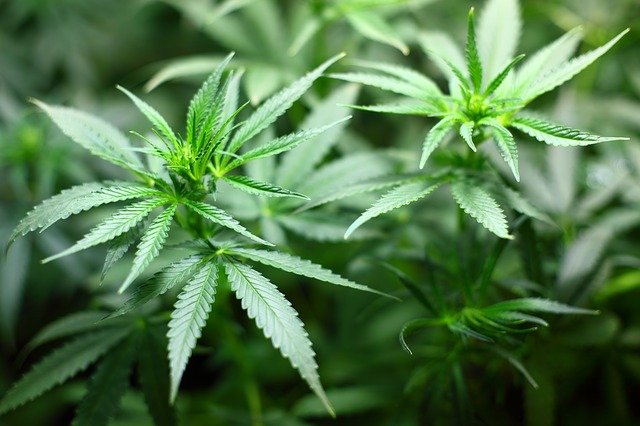
Cannabis Role in the Economy
COVID-19 all across the globe has left the global economy in complete oblivion. It has led to millions of people losing their lives, jobs, homes, and livelihood. The debate on the legalization of cannabis circulates its medicinal benefits. It leaves behind the most crucial argument- its economic benefits. As such, now is the best time to legalize the cannabis plant. Legalize the Cannabis plant for medicinal purposes and cultivation, production, sale, and export.
Table of Contents
ToggleHere’s why!
In America, over 250,000 employees are currently working in the cannabis industry. According to the statistical data released by New Frontier Data, the national legalization of Cannabis in the U.S. could result in over $128.8 billion in tax revenue and over 1.6 million new job opportunities.
In a cannabis flower, there are over 450 compounds. One hundred twenty out of them are cannabinoids, famous for their medicinal purposes. The present cannabis industry has medical cannabis, recreational cannabis, and pharmaceutical products. These products incorporate certain cannabinoids and are part of the ‘wellness’ industry.
The cannabis industry is currently the fast-growing industry in the world. Many people often seek Cannabis seeds in 2021 to grow the plant in their facilities and conduct businesses. As per a Grand View Research Inc report, the global cannabis market will reach USD 146.4 billion by the end of 2025.
In the United States, Colorado and Washington were the initial two states to approve marijuana legalization in 2012. In the 2020 ballot, Americans sided for reforms in their drug laws. Voters in Arizona, Montana, and New Jersey favored cannabis for recreational purposes, while in Mississippi and South Dakota, voters favored cannabis for medicinal use. Legalized cannabis and Potential Benefits of delta-8-THC are already evident in these states that have decided to move their legal positions on drug laws. The legalization of cannabis can profit both the states and the federal governments.
Following are the crucial economic benefits of legalizing cannabis.
-
Jobs and Income prospects
According to RCG Economics and Marijuana Policy Group’s latest study, legalizing marijuana for recreational use alone can generate over 41,000 jobs and $1.7 billion in labor income by 2024. Similarly, another research estimated by ICF says that the legalization of Cannabis sales led to the growth of at least 81,000 additional direct, indirect, and induced jobs in California.
-
Impact on Tax revenue or income
According to studies, in 2019 alone, there was a collection of more than $302 million in taxes and fees. This collection took on medicinal and recreational marijuana from Colorado. And the total sales in the state reached over $1.7 billion. Reports from Arcview Market Research and BDS Analytics suggest a sale of $12.2 billion in 2019 in the US. A prediction states that this would increase to $31.1 billion by 2024. According to a Colorado State University report, legal cannabis contributed more than $80 million in 2017.
-
Investment Opportunities
Legal marijuana has the prospect of enriching the economies at the local and national scale. Still, it can also help secure investors’ portfolios from all across the country and further. If the marijuana industry becomes legal at the federal level, the marijuana company will become free to list their stocks on all U.S. exchanges. It will enhance liquidity as well as ensure access to many investors from all around the world.
-
Reduced Expenses
Federal cannabis costs several billion dollars per year. The Enforcement costs also refer to the investigation’s overall costs and attorney fees incurred in any marijuana legal case. In 2013, a report conducted by the American Civil Liberties Union found that the price at that time was about $3.6 billion per year. It indicates that the more states that legalize cannabis, the lower the enforcement cost will become on the national level.
Use of Cannabis around the World
The deregulation of cannabis for medicinal purposes led to recent investment and interest in the markets of Europe and the U.K. In England, two cannabis-based medicines used to treat epilepsy and multiple sclerosis were approved by the NHS in November of 2019.
Germany legalized the use of marijuana to use medicinal purposes back in 2017, followed by Portugal, Denmark, and Poland. Canada took to the historic decision of completely legalizing marijuana after 95 years of a prohibition under Prime Minister Justin Trudeau’s leadership. On 17 October 2018, Canada legalized recreational marijuana, making the Canadian market the most extensive legal cannabis market globally with an estimated worth of over $5 billion.
Conclusion
The idea of recreational legalizing cannabis in the states comes with serious pushbacks. Some are against the legalization of marijuana because it will change the status quo. Medicinal marijuana is legal in some states. Also, many states are individually moving towards legalizing it, which can be a boon for the economy.


